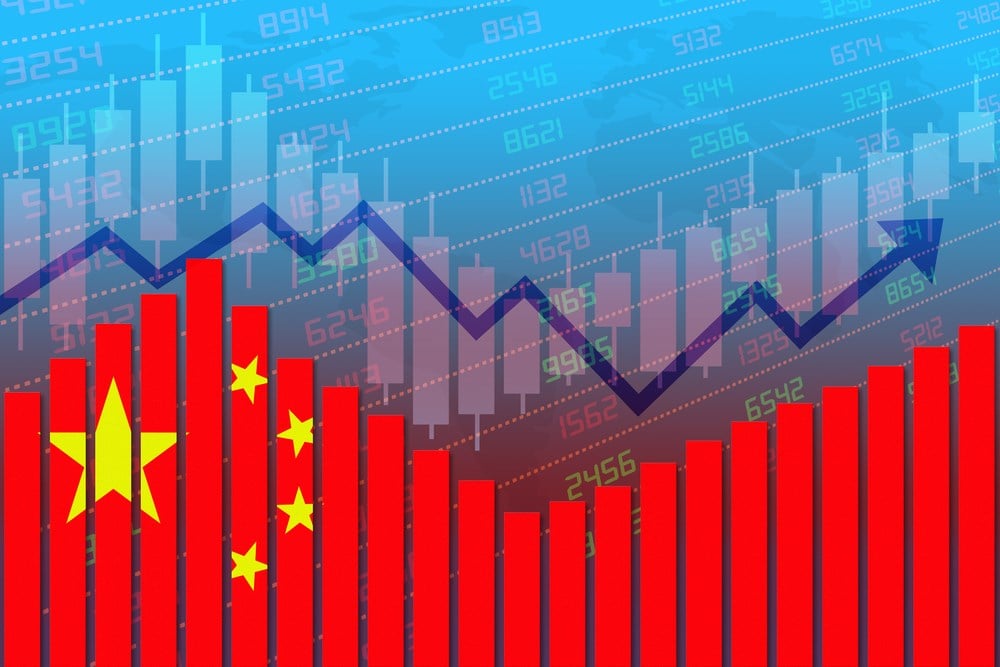
Ray Dalio, the former manager of Bridgewater Associates, has been widely regarded as one of the best macroeconomic investors of all time, with his fund's philosophy focused on building the perfect 'all-weather' portfolio. These strategies seek to take advantage of different economic developments worldwide and across industries.
Dalio's philosophy remains at the fund, which is why investors need to pay attention whenever such a big player decides to make a new purchase or sale. Today, a new transaction of $320 million marks the latest addition to the fund, a three-part investment betting on one thing.
According to the latest 13-F filings from Bridgewater, three significant additions were made to 198%, 120%, and 27% during the past quarter. It would surprise many that the bulk of these purchases are in financial assets, all focused in China.
MSCI China ETF
The iShares MSCI China ETF (NASDAQ: MCHI) enables investors to invest in a basket of the largest Chinese firms to spread exposure to the nation's biggest names.
The fund purchased up to 778 thousand shares during the quarter, exposing investors to the ETF's top holdings in names like Tencent (OTCMKTS: TCEHY), Alibaba Group (NYSE: BABA), and PDD Holdings (NASDAQ: PDD). These stocks have double-digit analyst upside and are trading well below half their 52-week high prices.
This ETF has underperformed the S&P 500 by as much as 31% this year; on a relative valuation basis, Bridgewater hopes to close this performance gap and generate hefty returns for their investors.
Apart from being exposed to double-digit upside from appreciation, investors will also have access to a 1.8% dividend yield to cushion the inevitable volatility of investing in Chinese markets. However, if the upside is enough for this multi-billion asset manager, the upside potential will be even bigger for the everyday investor.
China Large-Cap ETF
Moving on to yet another China ETF, Bridgewater added 2.1 million shares to the iShares China Large-Cap ETF (NYSEARCA: FXI) during the period. While similar in composition, this ETF differs from the first one in that the focus is more on holding China's largest equities.
If owning some of the smaller names brings too much volatility for your taste, this ETF can take care of that, considering its underperformance to the S&P 500 stands at a lower 24% this year.
Providing less volatility, which can put a cap on your downside risk, will also bring a tradeoff via capping your upside potential. Knowing that both ETFs are managed and offered by asset manager giant BlackRock Inc. (NYSE: BLK) can get a sense of added security in owning them.
What would you get when owning this large-cap ETF? Well, Alibaba Group is a top holding for starters. Alibaba is the first name regarding the seeming recovery in China's consumer sector, so it makes sense why both the ETF and Bridgewater are confident about it.
Tencent comes second, followed by China Construction Bank (OTCMKTS: CICHY). This name is also very well positioned to rally on the newest stimulus measures being implemented by the government.
PDD Holdings
Despite already gaining exposure to this name via the first ETF, Bridgewater has placed a double-confidence bet on PDD Holdings, as it directly bought up to 589 thousand shares during the quarter. Why is there a double vote on this name? The company's financials may hold the answer.
While not carrying as high an upside as the other names held in the ETF, analyst ratings still see a consensus price target of $117.75 a share, implying that the stock needs to rise by 20.9% to meet this valuation.
Perhaps analysts are mitigating their own risk of becoming too bullish on China; the fact is that a yearly revenue jump of 66% during the latest quarter is undeniable. Moreover, net income grew by a massive 43% during the same period, while the stock decreased by more than 15%.
All else being equal, stock prices should follow any increase or decrease coming from EPS in lockstep since it mostly drives stock valuations. Considering this significant gap in value to performance, investors can begin to applaud Bridgewater's decision.
Why China?
These bets will soon pay off since the Chinese economy has shown its first sign of recovery since the aftermath of the COVID-19 pandemic threw it into contraction territory.
Chinese inflation had fallen to negative 3% in the past quarter, implying that the consumption levels - from both citizens and businesses - were falling and thus affecting the overall economy. Today, China reports a small, though critical, inflation rate of 0.1%.
Most of the holdings within these ETFs, especially the sole addition in PDD, heavily rely on the Chinese consumer doing his thing. Now that the worst may be behind, judging by the recovery signs, the outlook on these firms may return to all-time highs, perhaps along with their stock prices.





